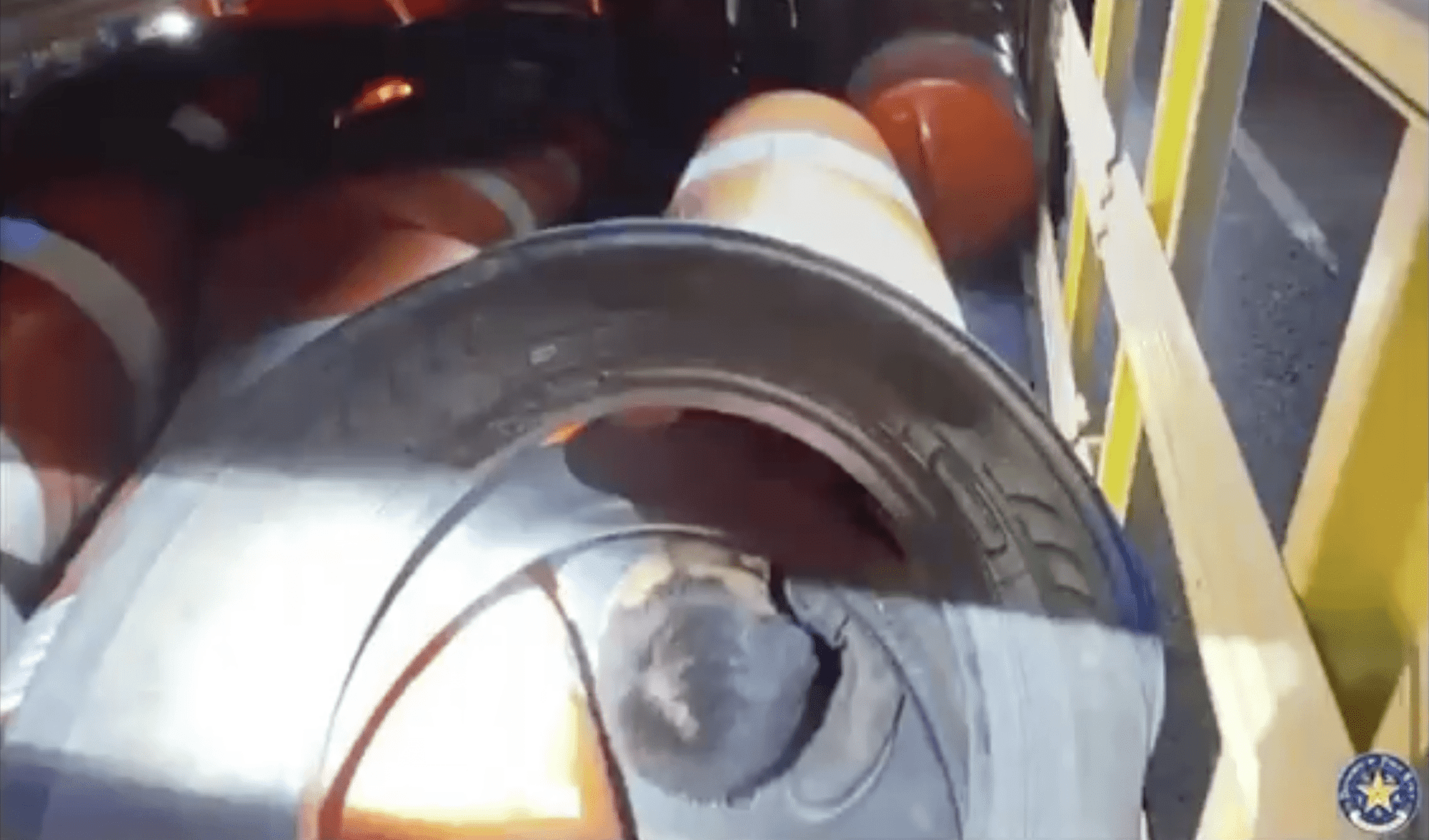Whether or not a police dog can stick its head through an open car window has been elevated to Texas’ highest court for criminal cases as a constitutional rights issue. The State argues a police dog can sniff inside a vehicle during an exterior search, while the Defense calls it a violation.
The Texas Court of Criminal Appeals (CCA) heard oral arguments last week in The State of Texas v. Courtney James-Varnell Organ, involving a potential Fourth Amendment violation by law enforcement officers in Waller County.
Organ was arrested after Jaks, a narcotics detection dog, jumped up on Organ’s vehicle, stuck his nose through an open window, and sat to alert officers. They searched the car without a warrant and found Organ in illegal possession of Etizolam, a Schedule I controlled substance.
Parker Rider-Longmaid, Organ’s defense attorney, argued to the CCA judges that Jaks’ physical entrance into the vehicle constitutes an unreasonable search in violation of the Fourth Amendment. The facts of the case, which both sides’ attorneys agreed occurred, provide useful background information.
When Texas Department of Public Safety Trooper Kyle Cornell first approached the vehicle, Organ lit a cigarillo, and the passenger appeared nervous. Cornell might have smelled decaying food and possibly marijuana. Consent to search the vehicle was denied, and Jaks was called upon to conduct an open-air sniff test to establish probable cause for a search.
A Waller County Deputy Sheriff, identified only as “Deputy Kem” in the court filings, led Jaks around the vehicle on a leash. Upon approaching the passenger-side window, which had been rolled down for Trooper Cornell, Jaks jumped up and stuck his nose through the window to sniff. This occurred three times before Jaks’ signal.
Only an exterior search of the vehicle is permitted without a warrant, consent, or probable cause. Organ’s defense counsel argued in a written brief that since Jaks had not been alerted to the presence of contraband before entering the window, the search was unconstitutional.
Jaks was not trained to recognize etizolam, according to the brief, suggesting he was alerted to something else. Since Jaks had not been trained against alerting to food or treats, this may have been what caused him to sit.
State Prosecuting Attorney Emily Johnson-Liu’s primary arguments concerned the difference between real property and personal property.
She contends that although real property has an invisible boundary extending beyond its physical nature, personal property does not. Reaching over somebody’s property line or real property line could constitute trespassing.
Conversely, placing a hand above a phone or other personal property is not trespassing. Since a car is personal property and Jaks did not touch its interior when he poked his head through the window, Johnson-Liu argues there was no trespass.
This argument prompted multiple judges to ask her whether, following her logic, an officer could then hold his body camera through an open window or even fly a drone through the car. Johnson-Liu said that doing so would “not be a trespass.”
Johnson-Liu also argued that Deputy Kem did not intend for Jaks to enter the open window, as he was merely attempting to sweep around the outside of the vehicle.
Judge Scott Walker was not impressed by this argument. “I can understand the officer accidentally letting the dog do that the first time… but the third time’s the charm,” he stated. “It sounds like the officer was doing his very best to get the dog to alert.”
The State of Texas v. Courtney James-Varnell Organ is a developing case, and the Court of Criminal Appeals has not made a decision. Both the Trial Court and the Appellate Court previously issued opinions in favor of Organ, and the State appealed.
The precedent set by this ruling will have a real effect on the rights of Texans. If the court rules in the State’s favor, it could license officers to strategically violate the boundary of open car windows going forward.
Should the court rule in favor of the defendant, officers will be restricted to operating outside the traditionally perceived physical boundary of a vehicle during traffic stops.
No ads. No paywalls. No government grants. No corporate masters.
Just real news for real Texans.
Support Texas Scorecard to keep it that way!



